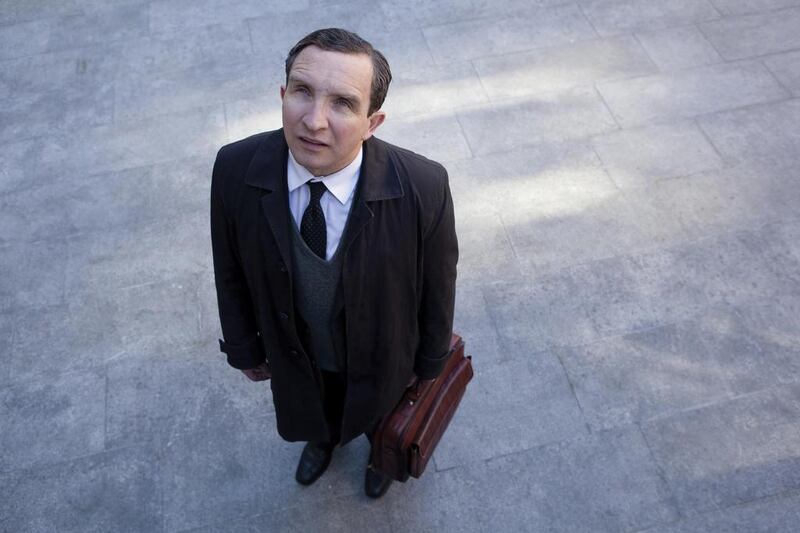For the filmmaker Uberto Pasolini, his latest movie Still Life came from a moment of personal introspection about his future.
While he's had a richly varied life — he was born into the Italian aristocracy, has worked on classic films such as The Mission and The Killing Fields and was the producer of the British comedy The Full Monty — recently he began to experience feelings of isolation.
“I got divorced five years ago, but for the first time in 20 years I rediscovered what it is to come home to an empty, quiet house where it’s dark,” he recalls as we discuss the screening of his work at the Abu Dhabi Film Festival. “When I came home, in every room I had to switch the light on or you switch on the radio to give yourself company.
“This sense of solitude came back to me on the evenings I didn’t see my children. I tried to imagine what it’s like to live the kind of life where your only communication with people is a few words with the person at the supermarket counter and began to wonder what it’s like to die alone.”
Soon after this, he read an article in The Guardian newspaper in his home city of London.
“It was an interview with a funeral officer, who are these council employees who deal with people who die alone,” explains Pasolini. “These people are usually less well off, because people who are more well off tend to have friends. That’s the sad reality of it. And even if they trace their family down, often they want nothing to do with their funerals.
““In Western society, isolation is a huge problem not just for old people,” he says.
From this, he wrote the script for and directed the tale of a disillusioned funeral officer who, after being made redundant when his department is downsized, realises he too could be heading for a lonely, friendless death.
So, he embarks on a road trip around Britain to try to research the life of an elderly neighbour who has passed away. The movie stars Eddie Marsan, one of the UK's most accomplished character actors, known for his parts in War Horse, Sherlock Holmes and Mission Impossible III.
“The film is a very personal one to me,” Pasolini goes on. “In fact, when I discuss it I tend to well up because of the mixtures of feeling I have for the reality of people that it portrays.”
“The film is about life. It is about the importance of keeping contact with your neighbours and knowing who your neighbours are.”
He hopes the message of the movie still relevant outside the UK, in countries such as the UAE where the elderly are treated with more respect.
“I believe that the family structure in this part of the world is still very strong and elders are not isolated, as they are in the West.
“I’m not sure an Emirati audience would feel what the issues are, but at the same time the film is about life and human beings. Therefore I hope this film is still relevant.
“But whatever our nationalities, our busy, rushed lives mean the reality is we are all losing small moments of human contact with our neighbours. And these moments are really enriching in our lives.”










